Rangers announce £17.2million annual loss as club cling to player-trading dream
Rangers have suffered a bigger loss of £17.2m despite attempts to cut costs and introduce a player trading model.
The figures, released to the London Stock Exchange, show that the club lost £4.1 million more in the last financial year than in the previous 12 months, despite total income rising to a record £94.2 million.
Although revenues have increased and wages have fallen marginally overall to £61.2 million, total operating costs are still £110 million.
The annual review also stated that Rangers had reduced an operating deficit of £10.5 million to less than £2 million.
The first team wage bill has fallen by £2.5 million and is expected to fall by a further £6 million in the coming year.
Rangers have suffered a bigger loss of £17.2m despite attempts to cut costs
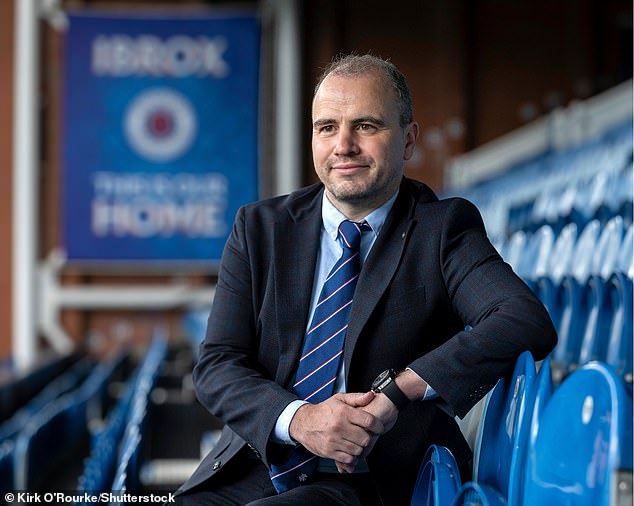
Chief Finance Officer James Taylor predicts the balance sheet will be stronger in the future
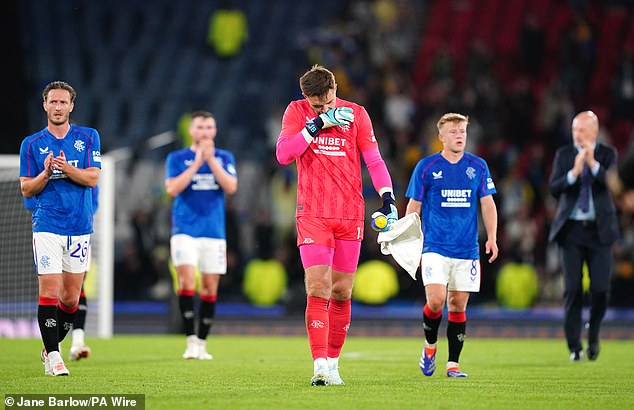
The Ibrox club were not helped by their failure to qualify for the Champions League
The club’s chief financial officer, James Taylor, predicted that the club’s balance sheet will look stronger once they roll out the desired player trading model.
“What I need to emphasize here is that there was a net loss of £17 million this year,” Taylor said.
“Even though that number is something we need to acknowledge and observe, it is something we recognize and understand how to move forward and solve the problem.
‘A large part of that loss comes from the impact of the player trading model and this year from taking impairments on players from the recent past which we continued with this summer.
‘Again, one of the main talking points of the summer was the normalization of the first-team wage bill from the club’s perspective.
“That has allowed us to look at how we can progress in a sustainable way and in a way that allows us to reach a break-even point before the player trade. Which again is a stated objective.’
However, Taylor admitted that the club’s inability to reap the financial benefits of the Champions League this season, coupled with the Ibrox construction fiasco, will not improve the picture a year from now.
Philippe Clement’s side were forced to play a number of home games at Hampden after a delay in the arrival of building materials halted improvements to the Copland Road stand.
“It will be a challenge this year given the nature of the works at Copland, Hampden and indeed the Dynamo Kiev result,” Taylor added.
“That will be a challenge, but it is something we are focused on and want to achieve.
“For us as a football club, we need to get to a point where we have an operating model that is sustainable and successful.
“Then we have the football side of the business that generates on the player side, which gives us profits over a five-year cycle.
“If we deliver on that, we can start strengthening our balance sheet, accelerating investments and looking at different ways to further enhance the opportunities of the capital available to the first team.”
Rangers also said they are ‘free from legal action for the first time in more than a decade’ after settling a legal dispute with Elite Sports Group Ltd, owners of kit brand Hummel, in August.
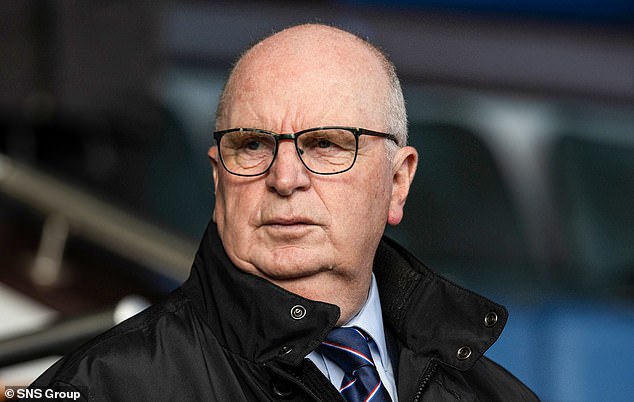
Interim chairman John Gilligan admits it has been a difficult year, both on and off the field
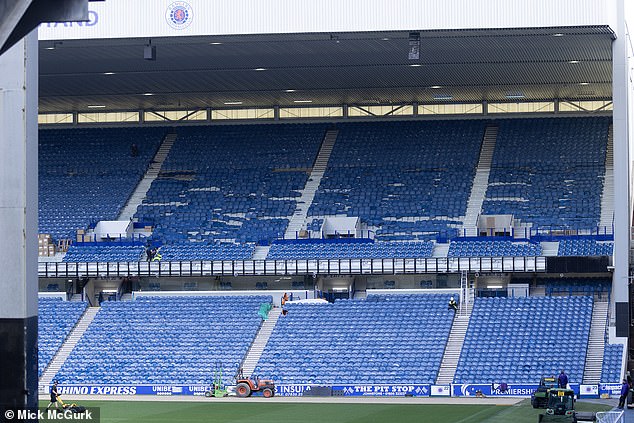
Problems with the construction work at Copland Road Stand had a negative effect on the club
Interim chairman John Gilligan, who stepped into the role following the departure of John Bennett earlier this year, admitted it had been a difficult year for the club, both on and off the park.
In his comments he noted changes in the club’s hierarchy but said there was ‘a strong management team’ in place to take the club forward.
Gilligan also said the club continued to look for ‘an excellent candidate’ to take on the vacant CEO role at Ibrox.
“It has undoubtedly been a challenging period for the football club, with significant changes both on and off the park throughout the 2023-2024 season and throughout the summer months,” he said.
‘As part of these changes, John Bennett has stepped back from his role as chairman to focus on his health.
“John remains a supportive shareholder and investor in the club and I would like to express my gratitude for his leadership, both as chairman and as a director over the past nine years. We look forward to welcoming (him) back to Ibrox.
“We have had a number of changes in senior leadership positions, with CEO, James Bisgrove, leaving to join Al-Qadsiah in the Saudi Premier League and Creag Robertson recently departing as our director of football operations.
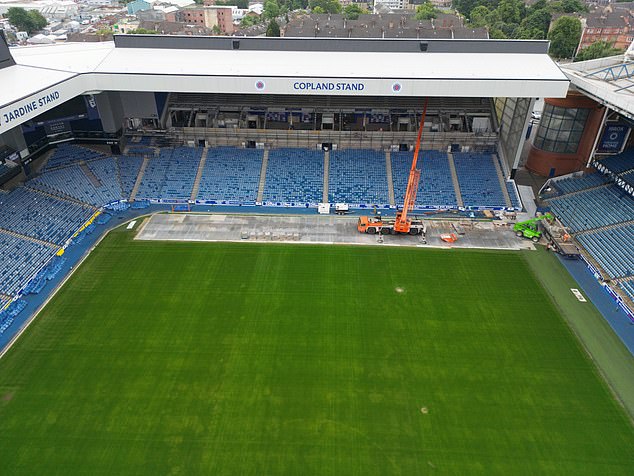
A delay in the arrival of building materials halted work and the team departed for Hampden
‘We wish both James and Creag all the best in their future careers and thank them for their commitment to the football club.’
Speaking about the ongoing search for Bisgrove’s successor, Gilligan added: ‘As we continue our search for the excellent candidate for the position of CEO, we retain a strong executive team within the football club led by our Chief Financial Officer James Taylor, Chief Commercial Officer Karim Virani and our director of football recruitment Nils Koppen.
“All three were hired during the reporting period and, as you can see from our underlying performance, significant progress has been made towards our strategic objectives in a short time.
“The challenges we encountered in the redevelopment of the Copland Road stand are well documented, and as a board we once again apologize to our supporters for any inconvenience caused by the delays in returning to our home.
“The support we received at Hampden was excellent and epitomizes the bond our great club has with our supporters.
‘I would also like to reiterate my thanks to the SFA, SPFL and UEFA for their understanding and support during this period.
“Now that the Copland Road stand has been completed, we are extremely proud of the work we have done to upgrade and improve the facilities for our disabled supporters.
‘They are now truly among the best facilities in Europe and are a testament to the board’s commitment to continuing to modernize and improve Ibrox and the wider campus.’
